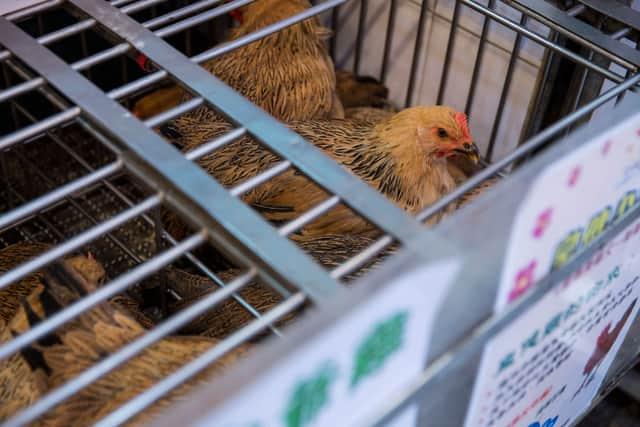China reports first human H3N8 bird flu death, according to WHO
and live on Freeview channel 276
A woman in China has become the first known human fatality from the H3N8 bird flu strain, says the World Health Organisation (WHO). The organisation confirmed the death after the two first non-fatal human cases were reported in the country in April and May 2022.
The first person reported to have died from the virus is a 56-year-old woman from the Guangdong province in south east China. The woman reportedly fell ill on February 22, and was hospitalised with severe pneumonia on March 3 before dying on March 16, WHO says.
Advertisement
Hide AdAdvertisement
Hide AdThe H3N8 strain of the avian influenza virus has been in circulation since 2002 and was first detected in waterfowl in North America. The virus has been known to also infect horses, dogs and seals.
In a statement on Tuesday (April 11), the UN health agency said: “The patient had multiple underlying conditions. She had a history of exposure to live poultry before the onset of the disease, and a history of wild bird presence around her home.
It added that “no close contacts of the case developed an infection or symptoms of illness at the time of reporting.”
Calling for further animal and human investigations, the WHO said that while the infection may have been caused by exposure to a live poultry market, “it is still unclear what the exact source of this infection is and how this virus is related to other avian influenza A(H3N8) viruses that are circulating in animals”.
Advertisement
Hide AdAdvertisement
Hide AdThe organisation continued: “It appears that this virus does not have the ability to spread easily from person to person, and therefore the risk of it spreading among humans at the national, regional, and international levels is considered to be low.
“However, due to the constantly evolving nature of influenza viruses, WHO stresses the importance of global surveillance to detect virological, epidemiological and clinical changes associated with circulating influenza viruses which may affect human (or animal) health.”


The announcement comes short after the UK government announced their plans to lift measures in place to stop the spread of bird flu at farms in the country. The Department for Environment, Food & Rural Affairs said in a statement: “Following ongoing monitoring using the latest scientific evidence and a robust risk assessment, bird flu risk levels have been reduced meaning poultry and other captive birds will no longer need to be housed and can be kept outside, unless they are in a protection zone or captive bird monitoring controlled zone.”
